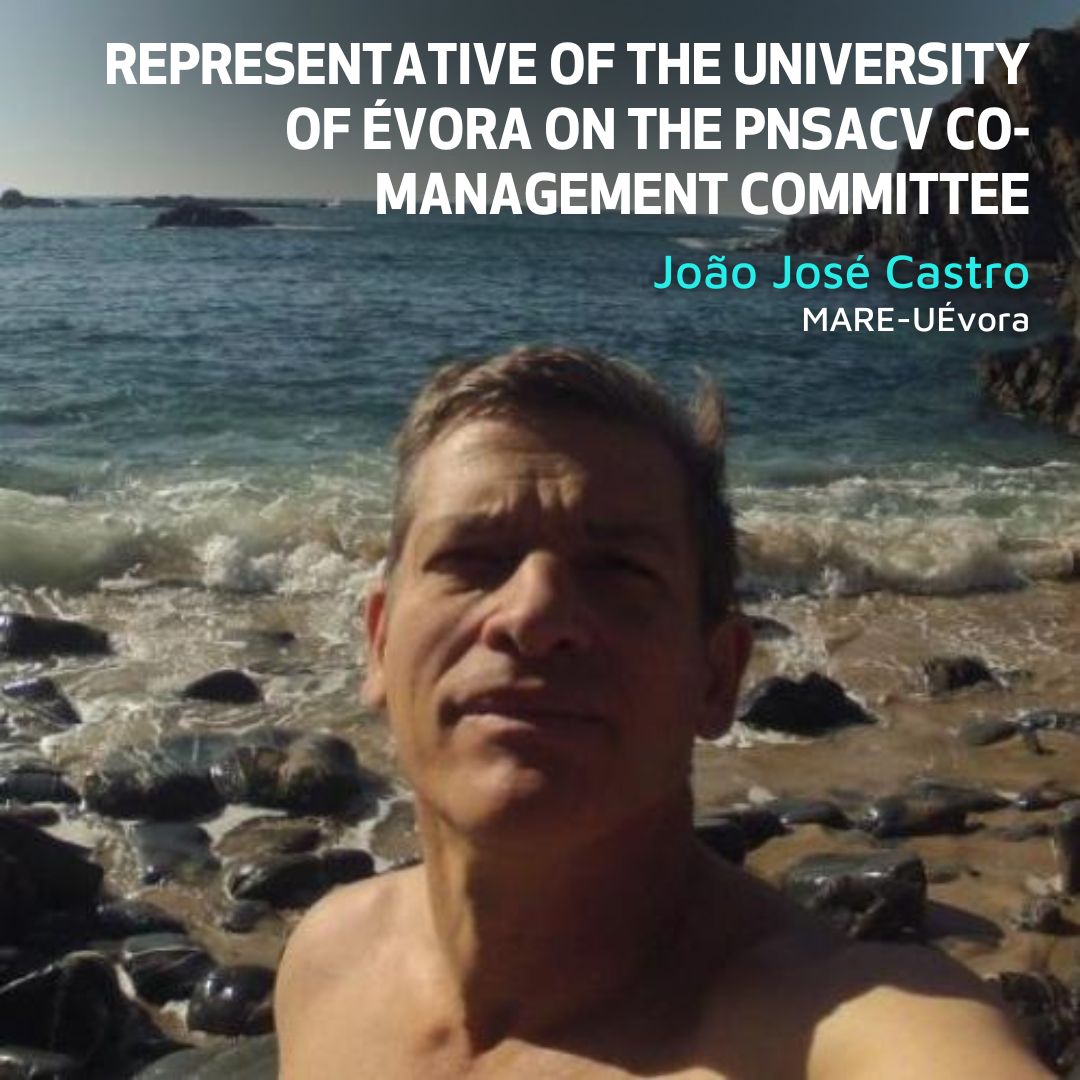MARE researcher represents the University of Évora on the Co-management Committee of the Southwest Alentejo and Vicentine Coast Natural Park
Professor João José Roma de Paços Pereira de Castro, researcher at MARE – Center for Marine and Environmental Sciences and lecturer at the University of Évora, was appointed, on the recommendation of the Rector of the University of Évora, as the institution's representative on the Co-management Committee of the Southwest Alentejo and Vicentine Coast Natural Park (PNSACV). 
With a career dedicated to marine biology and ecology, João Castro is an associate professor in the Department of Biology at the School of Science and Technology and director of the Marine Science Laboratory at the University of Évora, where he has promoted applied research and scientific cooperation. A member of ARNET – Aquatic Research Network, he is also part of MARE, contributing to the development of scientific knowledge relevant to the management of aquatic ecosystems.
Throughout his academic and scientific career, he has coordnated or participated in dozens of research projects, environmental monitoring, and impact studies, with significant scientific output: he is the author or co-author of more than 40 scientific publications and has presented more than 130 papers at specialist conferences. At the same time, he has promoted training and dissemination activities, strengthening the link between science and society.
His appointment is part of a co-management model that values the active participation of scientific institutions in the sustainable management of protected areas. The PNSACV Co-management Committee, which has executive functions, works closely with various local and national actors to promote the conservation and enhancement of the territory.
The Southwest Alentejo and Vicentine Coast Natural Park, covering around 90,000 hectares (almost a third of which is marine environment), is one of the most ecologically rich areas in Portugal. It is characterized by a unique combination of terrestrial and marine habitats, high biodiversity, endemic and rare species, and a strong presence of migratory and resident communities, such as the white stork and the otter, which uses the marine environment as a hunting ground — a rare phenomenon in Europe. At sea, the confluence of Atlantic and Mediterranean waters and coastal outcrops create ideal conditions for high biological productivity.
The inclusion of Prof. João Castro in this Commission reinforces the commitment of the University of Évora and MARE to participatory management based on scientific knowledge, contributing to ensuring the conservation of natural values and the balance between environmental protection and sustainable local development.
Written by Patrícia Carvalho
